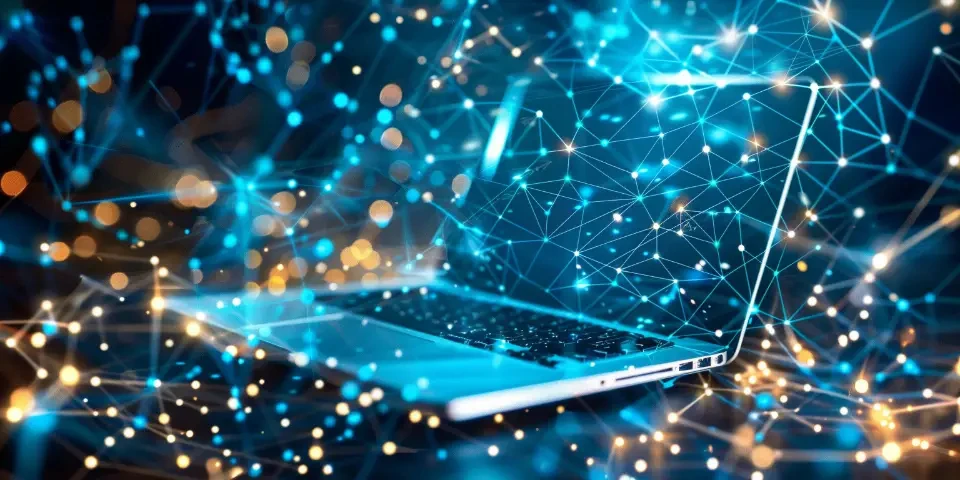Unleashing the Power of AI How It Can Transform Your Everyday Tasks
Artificial Intelligence (AI) has emerged as a revolutionary technology that has the potential to transform our everyday tasks and enhance our efficiency. With its ability to analyze vast amounts of data, learn from patterns, and make informed decisions, AI has become an invaluable tool across various sectors. In this article, we will explore how AI can redefine and streamline our daily routines and unlock new possibilities.
1. Personal Assistants
AI-powered personal assistants, such as Amazon's Alexa and Apple's Siri, have become an integral part of many households. These virtual assistants can perform a wide range of tasks, from setting reminders and managing calendars to answering queries and controlling smart home devices. They can simplify our lives by anticipating our needs and providing personalized recommendations.

2. Language Translation
AI-powered language translation tools, like Google Translate, have broken down language barriers and made communication easier. These tools use neural networks to understand and translate text or speech between different languages. They can be extremely useful for travelers, businesses, and individuals seeking to connect with people from different cultures.
3. Healthcare
AI has the potential to revolutionize healthcare by enabling faster and more accurate diagnosis and treatment. Machine learning algorithms can analyze medical records, images, and symptoms to assist doctors in making informed decisions. AI-powered chatbots can also provide basic medical advice and answer common health-related questions.
4. Autonomous Vehicles
Self-driving cars, a remarkable application of AI, are poised to transform the transportation industry. These vehicles use sensors, cameras, and AI algorithms to navigate roads and make real-time decisions. They have the potential to reduce accidents, traffic congestion, and fuel consumption, making transportation safer and more efficient.
5. Smart Homes
The integration of AI into smart home devices allows for seamless automation and control. AI-powered devices can learn our preferences, adjust the temperature, lighting, and security systems accordingly, and even perform tasks like shopping or cleaning. They provide convenience, energy efficiency, and enhanced security.
6. Virtual Personal Trainers
AI-powered fitness apps and devices can act as virtual personal trainers, guiding individuals through customized workout routines and monitoring their progress. These tools can provide personalized feedback, suggest modifications, and track vital signs, helping individuals achieve their fitness goals effectively.
7. Financial Services
AI has significantly impacted the financial services industry. Advanced algorithms can analyze vast amounts of financial data, detect patterns, and make predictions. This facilitates risk assessment, fraud detection, and personalized financial recommendations. AI-powered chatbots can also handle customer queries and provide support.
8. Creative Industries
The creative industries can leverage AI algorithms to generate music, art, and literature. AI-powered tools can analyze existing works, identify patterns, and create original pieces. While some argue against the authenticity of AI creations, others see it as a source of inspiration and a tool to augment human creativity.
9. Cybersecurity
AI can play a crucial role in enhancing cybersecurity measures. AI algorithms can monitor network traffic, detect anomalies, and identify potential threats or attacks. By analyzing vast amounts of data and learning from patterns, AI can help in preemptively mitigating risks and ensuring the security of sensitive information.
10. Agriculture
AI-powered technologies are transforming the agriculture industry by optimizing crop production, monitoring soil conditions, and predicting weather patterns. Smart farming systems, equipped with sensors, drones, and AI algorithms, can analyze data to enhance crop yields, reduce water consumption, and minimize the use of pesticides.
11. Customer Service
AI-powered chatbots and virtual assistants are increasingly being used in customer service roles. These AI agents can handle basic customer queries, provide instant responses, and escalate complex issues to human agents when necessary. They can significantly enhance customer support efficiency and provide round-the-clock assistance.
12. Education
AI-powered educational tools can personalize learning experiences and provide students with tailored instructions. Adaptive learning platforms can dynamically adjust the curriculum based on a student's progress and learning style. AI can also assist teachers in grading assignments, providing feedback, and identifying individual student needs.
13. Energy Management
AI algorithms can optimize energy management by analyzing energy consumption patterns and suggesting energy-saving measures. Smart grids equipped with AI technology can balance supply and demand, reduce wastage, and promote the use of renewable energy sources. This can lead to more sustainable and efficient energy usage.
14. Natural Language Processing
Natural Language Processing (NLP) is a branch of AI that focuses on understanding and generating human language. NLP algorithms enable language-based interactions with machines, such as voice assistants, and facilitate sentiment analysis, language translation, and text generation.
15. Data Analysis
AI excels in data analysis, making it invaluable across various industries. AI algorithms can analyze large datasets, identify patterns, and derive actionable insights. This can aid in forecasting customer behavior, optimizing business processes, and making data-driven decisions.
Frequently Asked Questions:
Q: Is AI going to replace human jobs?
A: While AI has the potential to automate certain tasks, it is more likely to augment human capabilities rather than replace jobs entirely. AI can handle repetitive and mundane tasks, allowing humans to focus on complex problem-solving and creativity.
Q: How secure is AI technology?
A: AI technology, like any other technology, comes with security challenges. However, with proper implementation and robust cybersecurity measures, AI systems can be made secure and trustworthy.
Q: Will AI be controlled by humans or become autonomous?
A: The control and ethical use of AI are vital considerations. While AI systems can operate autonomously within defined parameters, they still require human oversight to ensure ethical decision-making and accountability.
Explore your companion in WeMate